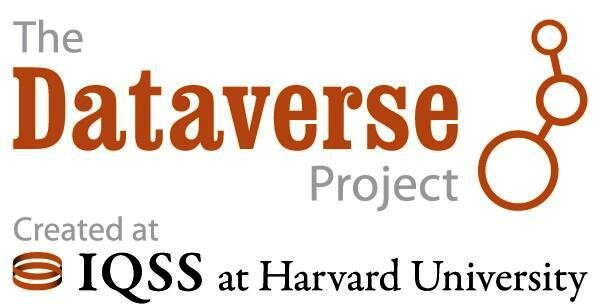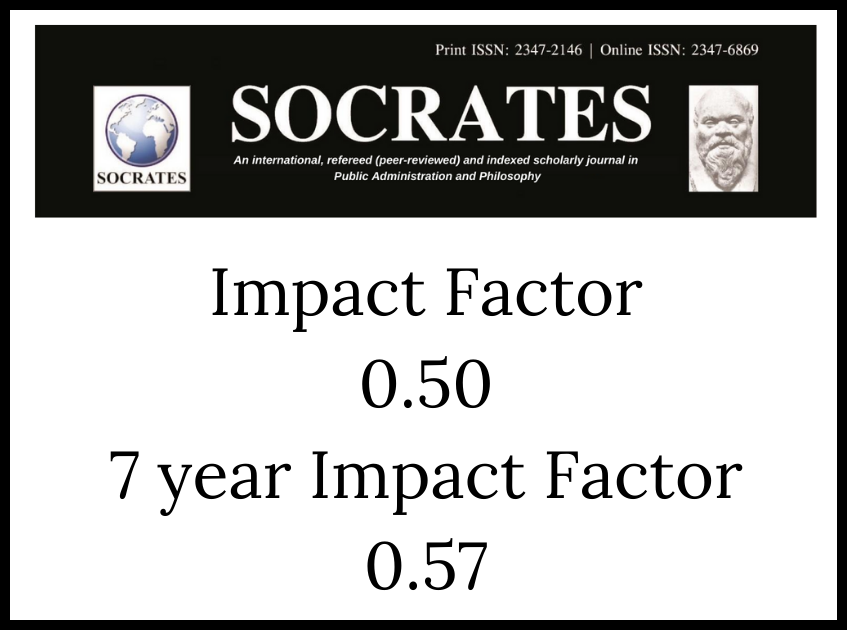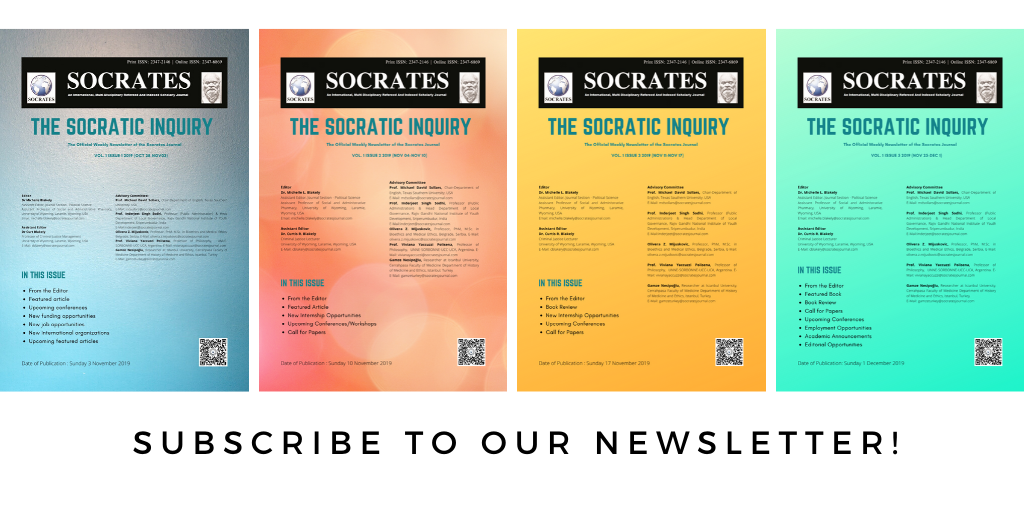Using the SOCRATES Dataverse
The SOCRATES Journal's replication policy for Contributors can be found here: https://www.socratesjournal.com/index.php/SOCRATES/dataverse
When an article has been accepted for publication, SOCRATES Journal requires that authors provide replication data and code for all quantitative analysis included in the article. Manuscripts will not be forwarded to production stage until authors meet the data replication standard.
Authors are asked to upload data and code to the Dataverse repository, which can be found here: https://dataverse.harvard.edu/dataverse/SOCRATESJOURNAL
Please follow these steps to use our dataverse:
1. Register as a user on Dataverse: You will first need to either ‘Sign Up’ –via the link in the menu at the top of the site –or ‘Log In’, if you’ve used Dataverse before. To sign up you’ll need to provide username and password, as well as your name and e-mail address, and to agree to the Dataverse terms of use.
2. Uploading your dataset: Upload your dataset using the + Add Data button, as indicated by the screenshot below, and select ‘New Dataset’.
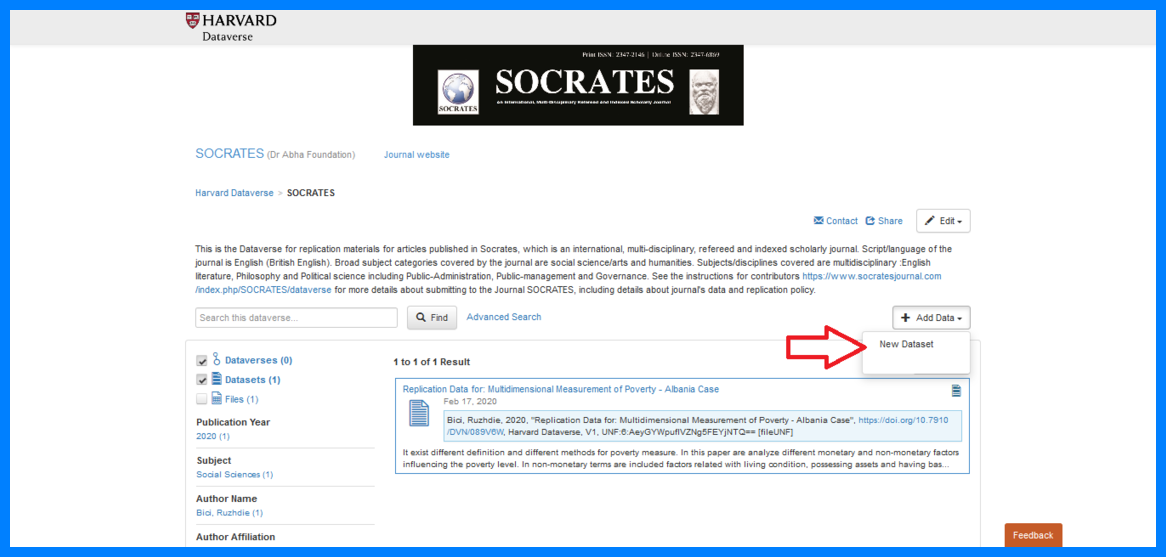
You’ll be taken through to a form with a certain number of required fields, indicated with an asterisk. In order to keep the entries in the Dataverse consistent we ask you to do the following:
- Title: This should be the title of the article you are submitting to the Journal SOCRATES, but please use the button that will add “Replication For:” to the title. (See screenshot below). This helps clearly indicate to other users that the uploaded dataset can be used to help replicate the study.
- Author and Contact: As a result of registering,your name and affiliation should prefill in the relevant fields. If you have an ORCID ID, please use the ‘Identifier Scheme’ and ‘Identifier’ fields to enter this.
- Description –‘Text’: This field should contain the abstract of your paper
- Subject and Keyword: Select ‘Social Sciences’ from the Subject area. Choose two or three keywords relevant to your study, e.g.,‘Party Funding,’ ‘Inequality,’‘Conflict.’ These terms will appear on the left of the Dataverse homepage, allowing users of the site to navigate.
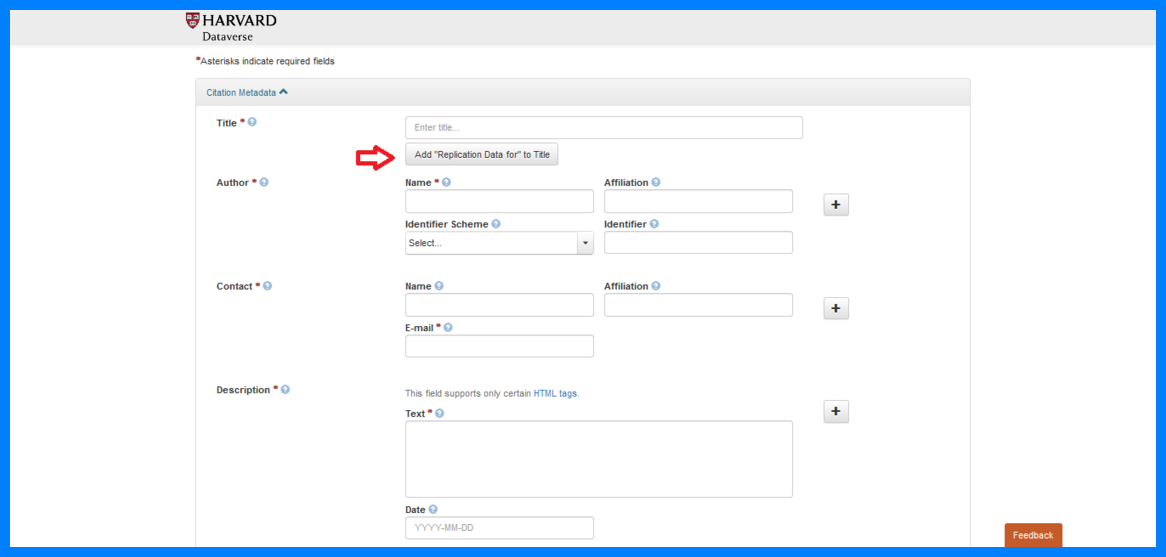
Scroll to the bottom to the ‘Files’ section and click on ‘Select Files to Add.’There is also an option to add files directly from Dropbox. Your files will appear below the “Select Files to Add” button. Use the ‘Description’ field to describe each file. Find the box at the top right-hand side of the page, click on Submit for Review.
3. CC0 Waiver:
All datasets uploaded to the Dataverse are granted the CC0 waiver. This is designed to reduce all legal and technical impediments to the re-use of data. Under CC0, you do not retain copyright. Instead the CC0 waiver places your data as completely as possible in the public domain, so that others may build upon, enhance,and re-use the work. There is no legal requirement that someone re-using your data provides you with attribution, only an expectation that people will do so, as outlined in the Dataverse Community Norms.
If you do not wish to have the CC0 waiver applied to your data,Dataverse provides a way of opting out. After you have saved your dataset, go to Edit and select Terms. Under Waiver select No, do not apply CC0. In the Terms of Use field you are able to set your own custom terms of use. See the screenshots below:
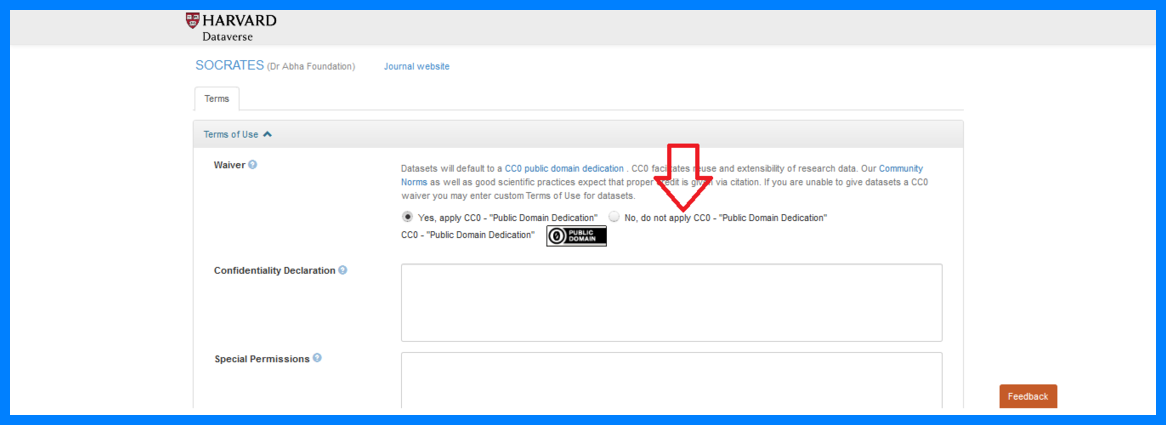
4. Citation Format:
The citation information for your uploaded dataset can be found in Dataverse, as shown in the screenshot below:
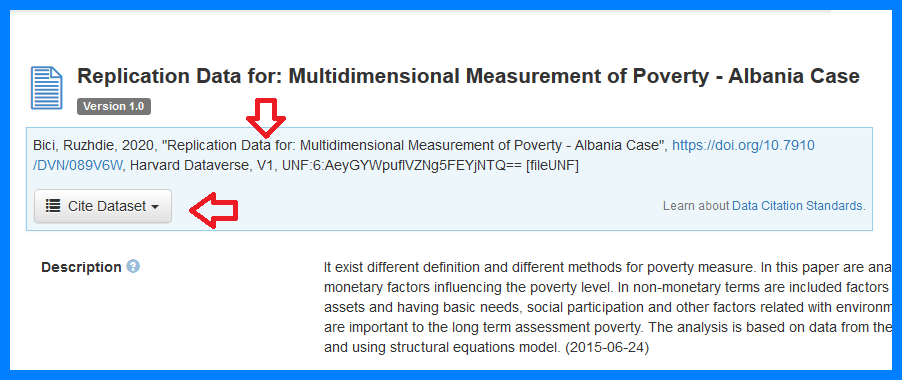
To enable readers to access the data and code, provide a Data Availability Statement at the end of your article, which includes the DOI that is generated by Dataverse. For example:
Data Availability Statement: Replication data for this article can be found in the SOCRATES Dataverse at: https://dataverse.harvard.edu/dataset.xhtml?persistentId=doi:10.7910/DVN/089V6W
In your reference list, please cite your replication data and any other data sources that are important to the paper to allow readers to find them in the future. Include the name and title of the dataset, the author information, the date of publication, the repository where the data is archived, any version information and the persistent identifier (e.g. DOI).
For example:
Whitten, Guy D.; Williams, Laron K.; Wimpy, Cameron, 2019, "Replication Data for: Interpretation: The Final Spatial Frontier", https://doi.org/10.7910/DVN/RGDEET, Harvard Dataverse, V1
Additional materials that are non-essential to the replication of the published results, but which could be of interest to readers, can be provided as supplementary material when you submit the article to the Socrates Journal through the online paper submission mechanism.
Supported File Formats:
- SPSS (POR and SAV formats) : 7 to 22
- STATA : 4 to 15
- R : up to 3
- Excel : XLSX only (XLS is NOT supported)
- CSV (comma-separated values) : (limited support)
Further support:
User Guide
Dataset + File Management
Tabular Data File Ingest
Supported File Formats
For assistance and guidance please contact Statistician and Dataverse Management:
E-Mail: datamanagement@socratesjournal.com


